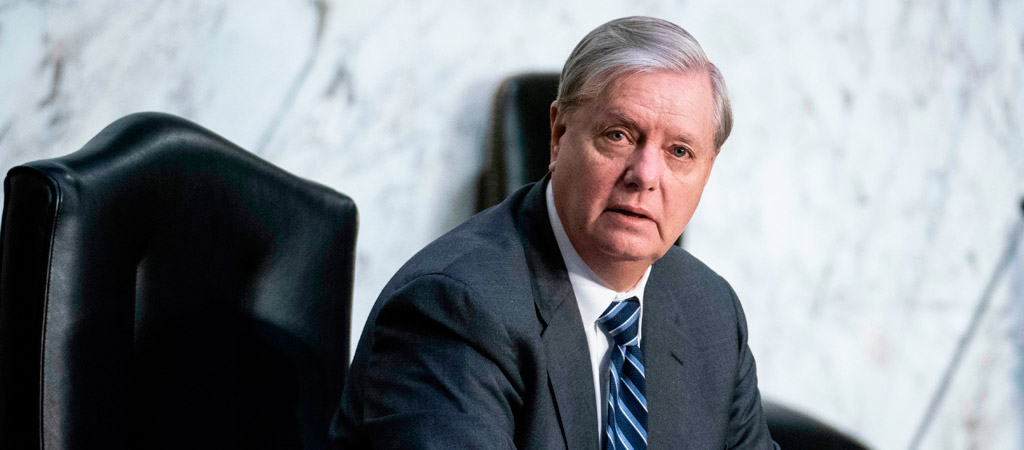Lindsey Graham and Donald Trump seem to be good now. Ever since the former president left office in disgrace, South Carolina senator and GOP top dog has more or less been on his side, excepting a couple disagreements. But just as he despised him before he clinched the Republican nomination in 2016, Graham also seemed to abhor him the day a sea of his violent supporters stormed the Capitol building. And a new book claims that his fury was even greater than previously reported.
According to Axios (in a passage teased out by The Hill), a new book by New York Times reporters Jonathan Martin and Alexander Burns, called This Will Not Pass, has yet another noteworthy bit about what went down that fateful day. At one point during the riot, Graham — either before or after he told police to “use” guns on the invading horde — furiously rang up White House counsel Pat Cipollone. And he reportedly told her that they in Congress will “be asking you for the 25th Amendment” if he didn’t do more to call off his misinformed, misled supporters.
The 25th Amendment, if you need reminding, allows the vice president and Congress to effectively remove the president from power if they’re no longer able to perform their job. The vice president then assumes the powers of the president.
That didn’t happen. But later that night, when Congress reconvened to finally certify the election the rioters tried to upend, Graham was visibly frayed. “Count me out,” he told his colleagues about further Trump shenanigans. According to Martin and Burn’s book, he went even further than that, saying he hoped the tragic event would unify the country.
“People will say, ‘I don’t want to be associated with that,’” Graham said. “There will be a rallying effect for a while, the country says: We’re better than this.”
Not long after, Graham went back to Trump’s side and started downplaying the Capitol attack that shook him so. And not long after that, the twice-impeached president accused of manipulating his supporters to overturn an election he lost became the presumptive Republican presidential candidate of the 2024 election, a position he holds to this day.

